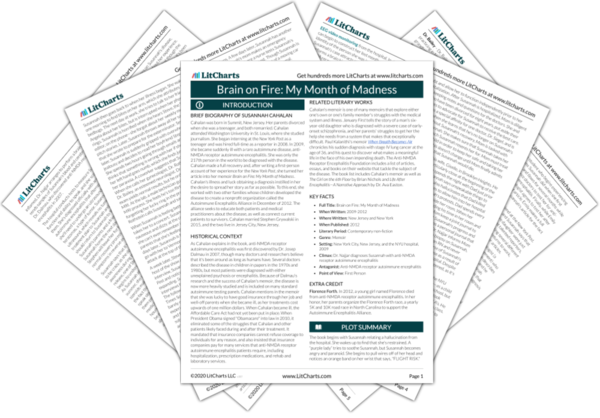When Paul questions Susannah about speaking to her mom, it reinforces even more that Susannah's support system is well-connected and interested in making sure that she's okay. Further, even if Dr. Bailey's tests came back normal, these mood swings are more evidence that something is very wrong with Susannah. In this way, Cahalan brings the reader fully onto her side and within the world of her memoir, discrediting Dr. Bailey and his diagnoses.
